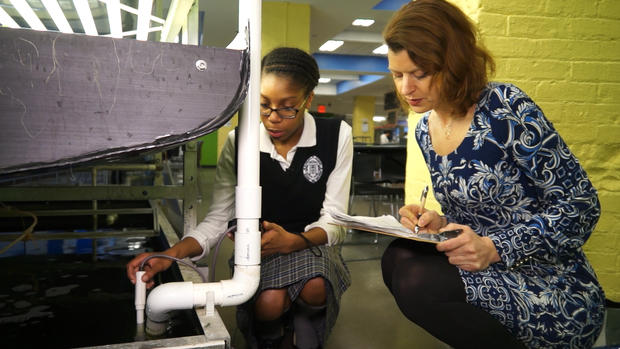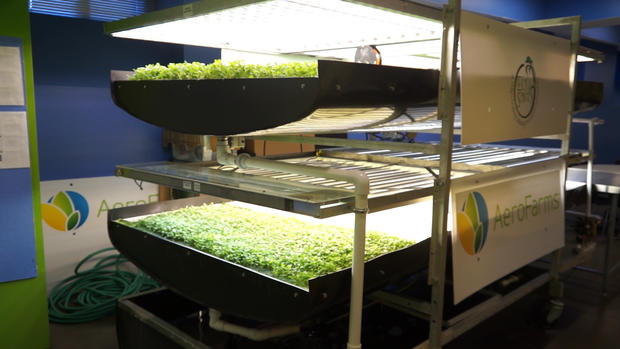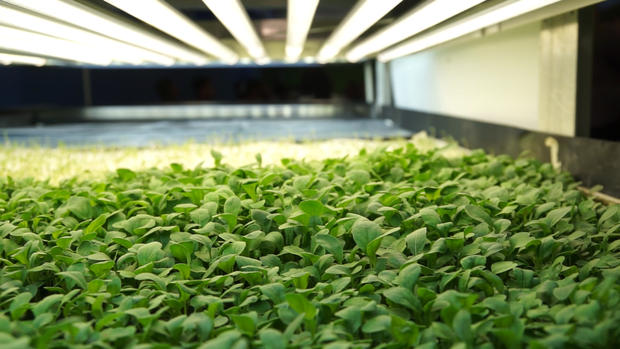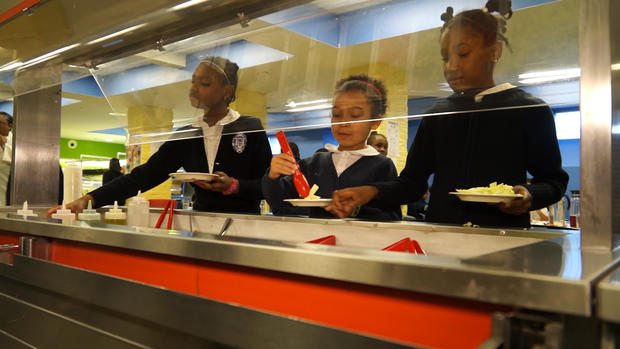For these students, lunch is personal
Yves Millien checks the acidity levels in the water to make sure the arugula grows properly. It's February in Newark, New Jersey - not your typical time to farm. But Millien is not your typical farmer. She's one of about 160 students getting hands-on experience cultivating crops in Philips Academy Charter School.
"I didn't know you could grow food inside," Millien, then in 8th grade, said of the vertical farm found inside the school's cafeteria, conveniently just a few feet from the salad bar.
Every 6th through 8th grader gets involved with the farm at some point during the year. Besides arugula, they grow various Asian greens.
"We harvest it and then it's used in the kitchen and therefore the salad bar and [we're] eating it during lunch and it's fun," said Millien.
The stacked farm produces about eight pounds of leafy greens every three weeks and is estimated to save Philips Academy around $300 to $400 per year.
"To me it adds a whole dimension of just creating excitement and an interest in learning more. It connects to science and it also connects to health and wellness," said Catkin Flowers, the environmental science teacher and EcoSpaces coordinator who helps the students learn how to farm.
The greens grow under an artificial sun of LED lights and they are fed a nutrient-rich water mixture.
AeroFarms, the company that created the stacked farm for Philips Academy, wants to not only help students learn about vertical farming, but to help improve issues around childhood obesity by adopting healthy eating patterns.
"We found that instead of giving leafy greens, donating to a school, but where we can put a farm in a school, it really helps change behavior," said CEO David Rosenberg.
For Millien, this isn't just a cool science project.
"I see foods differently. It definitely has a huge impact on what I eat now and what I would have eaten a few years ago."
The students even develop a sense of pride from growing their own food.
"We so often find that students have an aversion to eating healthy food. Especially in the middle school years it's not really cool to be eating healthy and they're like 'greens eww.' So when students really have an opportunity to really take ownership of their food, to be able to grow it and prepare it themselves then instead of becoming something that's being forced on them because it's quote unquote healthy, they have a vested interest in saying 'I made this and I want to eat it because it's good and I am proud of it'," said Flowers.
And for many of these students, this is the first time they are seeing how their food is produced.
"It was definitely like kind of eye opening because I didn't know about this stuff," said Millien. "And when I got here it was so cool to see that food has a big impact on your life, your energy, how you see the day."



